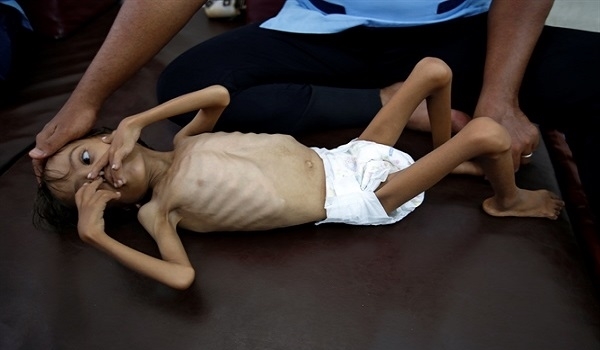
RNA - Millions in Yemen are at immediate risk if food aid and the supply of fuel for pumping clean water are interrupted, the UN official said, the AMN reported.
International aid agencies say Yemen faces disastrous consequences unless the blockade is completely lifted.
On 8 November, United Nations aid chief Mark Lowcock warned that Yemen could be facing “the largest famine the world has seen for many decades, with millions of victims”.
Save the Children said an estimated 130 children or more already die every day in war-torn Yemen from extreme hunger and disease, and if the blockade continued it was likely to further increase the death rate. It says over 50,000 children are believed to have died in 2017.
The International Rescue Committee called the blockade a “collective punishment” of Yemenis that risked driving 500 children into malnutrition every week.
The US-funded Famine Early Warning Systems Network (FEWS NET) said famine was likely in many areas within three or four months if ports remain closed. “Thousands of deaths would occur each day due to the lack of food and disease outbreaks.”
The United Nations has said some seven million people in Yemen depend entirely on food aid and are on the brink of famine and nearly 900,000 have been infected with cholera, a waterborne disease that causes acute diarrhoea and dehydration. Around four million rely on aid groups for clean water. A disruption of water supplies could reverse recent gains in containing the spread of cholera.
847/940